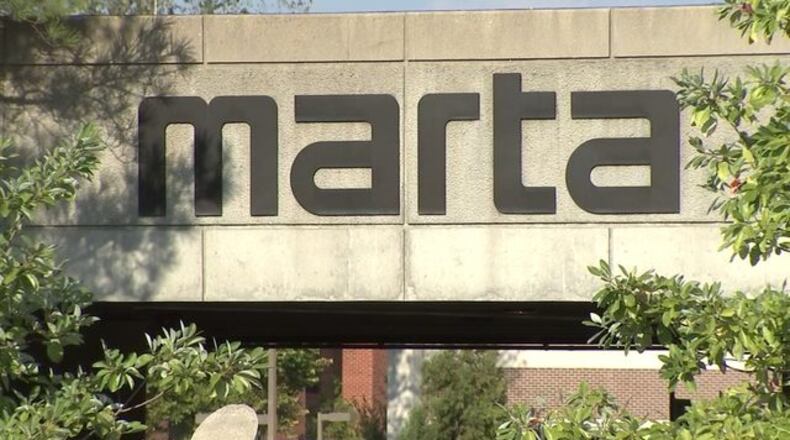The debate over whether MARTA is spending enough to build new transit lines in Atlanta has found a new focus: the agency’s 2024 budget.
The MARTA board of directors Thursday approved a new budget that aims to restore service to pre-pandemic levels and spends hundreds of millions of dollars on new rail cars, new track and other capital improvements. But critics say the budget would continue spending practices that jeopardize MARTA’s ability to expand transit in Atlanta in the future.
Since Atlanta voters approved a half-penny sales tax for transit expansion in 2016, MARTA has spent tens of millions of dollars of that money on enhanced local bus service — a practice the 2024 budget would continue. That’s money critics say won’t be spent on building new transit lines at a time when MARTA has postponed eight of 17 proposed projects indefinitely.
“If we want these 17 projects before midcentury, we have to come up with additional revenue,” said Matthew Rao, chairman of the advocacy group Beltline Rail Now.
MARTA says it may scale back spending on Atlanta’s enhanced bus service as part of a redesign of its entire bus network next year. But interim Chief Capital Officer Carrie Rocha said the spending on bus operations has not hampered MARTA’s ability to move forward on new transit lines.
“These are large projects. It takes time to go through the planning, public engagement and design process,” Rocha said. “There has been no shortage of money to move those projects forward.”
The budget for the fiscal year that begins July 1 contains good news for passengers. The $631.4 million operating budget represents a 7.5% increase over the current year and reflects the agency’s plan to restore service to pre-pandemic levels. That means trains and buses will run more frequently.
The budget also includes raises of 2% to 5% for nonunionized employees. Negotiations on raises for unionized employees continue.
The $854.5 million capital budget includes $607.8 million to improve the existing rail and bus network. That includes new rail cars, station renovations, track replacement and other improvements.
The capital budget also includes $218 million to expand transit in Atlanta and $28.7 million for expansion projects in Clayton County, where voters agreed to join MARTA and approved a transit sales tax in 2014.
MARTA’s expansion plans for Atlanta have drawn plenty of scrutiny lately.
MARTA revealed last year that it had dedicated more than half the proceeds of the expansion sales tax to enhance bus service and Atlanta Streetcar operations. MARTA says it added bus routes and increased the frequency of some existing routes in the city while spending money to design projects that will be under construction in coming years.
Enhanced bus service was part of the spending plan MARTA approved in 2018. But bus operations were expected to account for just $238 million of the $2.7 billion expansion program. Through December, MARTA has already spent $126.1 million on bus operations, according to a recent MARTA presentation.
The agency also has dedicated $80.4 million to “sustaining capital” for the enhanced bus service. That money would be used to replace buses or for other major capital expenditures needed to support the enhanced service. Rocha said that money has not been spent but has been set aside to be used if needed.
Until now, MARTA has designated half the proceeds of the sales tax each year for operations. But beginning next year, the agency will set aside 45% instead of 50% for operations.
Rocha said that could be further reduced when MARTA redesigns its bus network. She said such decisions would be made jointly with city officials.
Rao said even 45% is too much for operations when money is needed for new transit lines. He isn’t the only one asking questions.
The City Council has requested an audit of Atlanta expansion spending. MARTA and Mayor Andre Dickens are negotiating the terms of the audit.
About the Author


